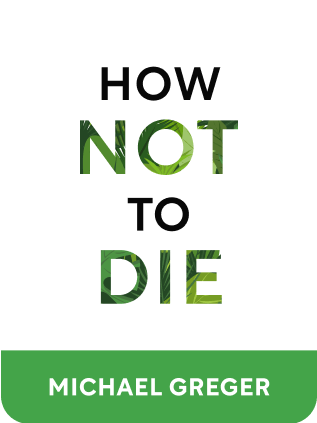

This article is an excerpt from the Shortform book guide to "How Not to Die" by Michael Greger. Shortform has the world's best summaries and analyses of books you should be reading.
Like this article? Sign up for a free trial here .
Can liver disease be deadly? Is there a way to prevent it? Is alcohol healthy or not?
More than 65, 000 people die from liver disease every year which includes cirrhosis and liver cancer. Many of those deaths can be prevented by practicing four simple behaviors: 1) maintaining a healthy weight, 2) consuming less fat, 3) avoiding excessive alcohol consumption, and 4) using your own needles.
In this article, we’ll take a look at how to prevent liver disease and explore the causes and mechanisms of action of its three major types (fatty liver disease, hepatitis, and alcoholic liver disease).
Understanding Liver Function
- All blood coming from intestines passes through the liver first.
- The liver metabolizes nutrients and deactivates toxins.
- You can survive without a kidney, stomach, and gallbladder, but you can’t survive without a liver.
Liver Diseases
We’ll cover three major types of liver disease:
Diet-induced fatty liver disease
- This is the most common cause of chronic liver disease, affecting 70 million people in the US. Nearly all severely obese people have liver disease.
- Mechanism of action:
- Fat deposits in liver cause inflammation, which cause liver scarring, which leads to liver failure.
- Cholesterol overload causes cholesterol to crystallize. White blood cells try to eat cholesterol crystals and die, causing inflammatory compounds to leak out and cause liver disease.
- Diet causes big changes quickly:
- One week of a fast food-heavy diet can cause pathological liver function tests.
- One can of soda per day raises fatty liver disease by 45%.
- Studies show animal fat and cholesterol cause liver disease. Eating the equivalent of >14 chicken nuggets per day of meat causes 3x the rate of fatty liver disease compared to <7 nuggets per day.
Alcoholic liver disease
- Excessive alcohol consumption causes fatty liver, which leads to inflammation in the liver and irreparable scarring. What is excessive? It’s defined as >2 drinks per day for males, or >1 drink per day for females.
- Heavy drinking can lead to fatty liver in 3 weeks. Luckily, in most people, stopping drinking allows the liver to resolve within 4-6 weeks.
Hepatitis
There are five types of hepatitis:
- Hep A—foodborne through feces, preventable with vaccine.
- Hep B—bloodborne, transmitted sexually and maternally through birth. Also preventable with vaccine.
- Hep C—bloodborne, transmitted through needle sharing. No prevention. Hep C is the leading cause of liver transplants.
- Hep D—only infects people with hep B, so prevent hep B and you won’t get hep D.
- Hep E—pigs may be the primary reservoir. 11% of pig livers show Hep E virus. Pork consumption in countries correlates with liver disease. Hep E is highly risky for pregnancy, so, while pregnant, cook pork well or avoid entirely.
Preventing Liver Disease
In their book How Not to Die, Gene Stone and Michael Greger give four guidelines on how to prevent liver disease: 1) don’t be obese, 2) eat less fat and cholesterol, 3) don’t drink alcohol heavily, and 4) don’t share needles.
Foods shown to be good for livers:
- Oatmeal
- A double-blinded, randomized, placebo-controlled trial in overweight people showed oatmeal reduced liver inflammation and led to weight loss.
- Refined grains like white rice are associated with an increased risk of liver disease.
- Cranberries
- Beat out other common fruits in suppressing liver cancer cells in vitro.
- Extracts failed to match the anticancer effects of whole cranberries.
- It’s best to eat them fresh or frozen, not juiced or dried.
- Coffee
- In the group at highest risk for liver disease, people who drank >2 cups of coffee per day showed less than half the risk of chronic liver problems.
- Among smokers, >4 cups of coffee per day showed 92% lower risk of death from chronic liver disease.
- Mechanism of action: coffee may reduce DNA damage, increase the clearance of infected cells, and slow the scarring process.
Is Alcohol Protective?
Whether alcohol is healthy or not has been the source of continuous flip-flopping in the media.
The simple facts:
- Alcohol decreases mortality, but only for those in poorer health.
- Drinking decreases heart disease, but increases cancer risk. Since heart disease is more common, this may be why alcohol is net protective.
- People who are reasonably healthy show no protective effect from alcohol. “Reasonably healthy” means people who exercise 30 minutes a day, don’t smoke, and eat at least one daily serving of fruits/veg

———End of Preview———
Like what you just read? Read the rest of the world's best book summary and analysis of Michael Greger's "How Not to Die" at Shortform .
Here's what you'll find in our full How Not to Die summary :
- The health benefits of a plant-based, whole-food diet
- How to reduce your risk of developing the most common diseases that can kill you
- The 12 foods you should eat daily to maximize health benefits






